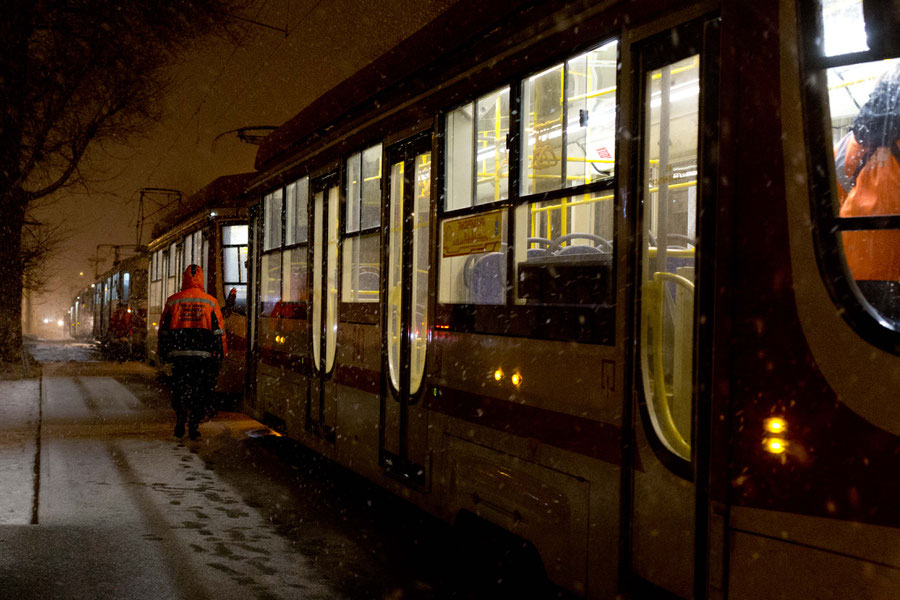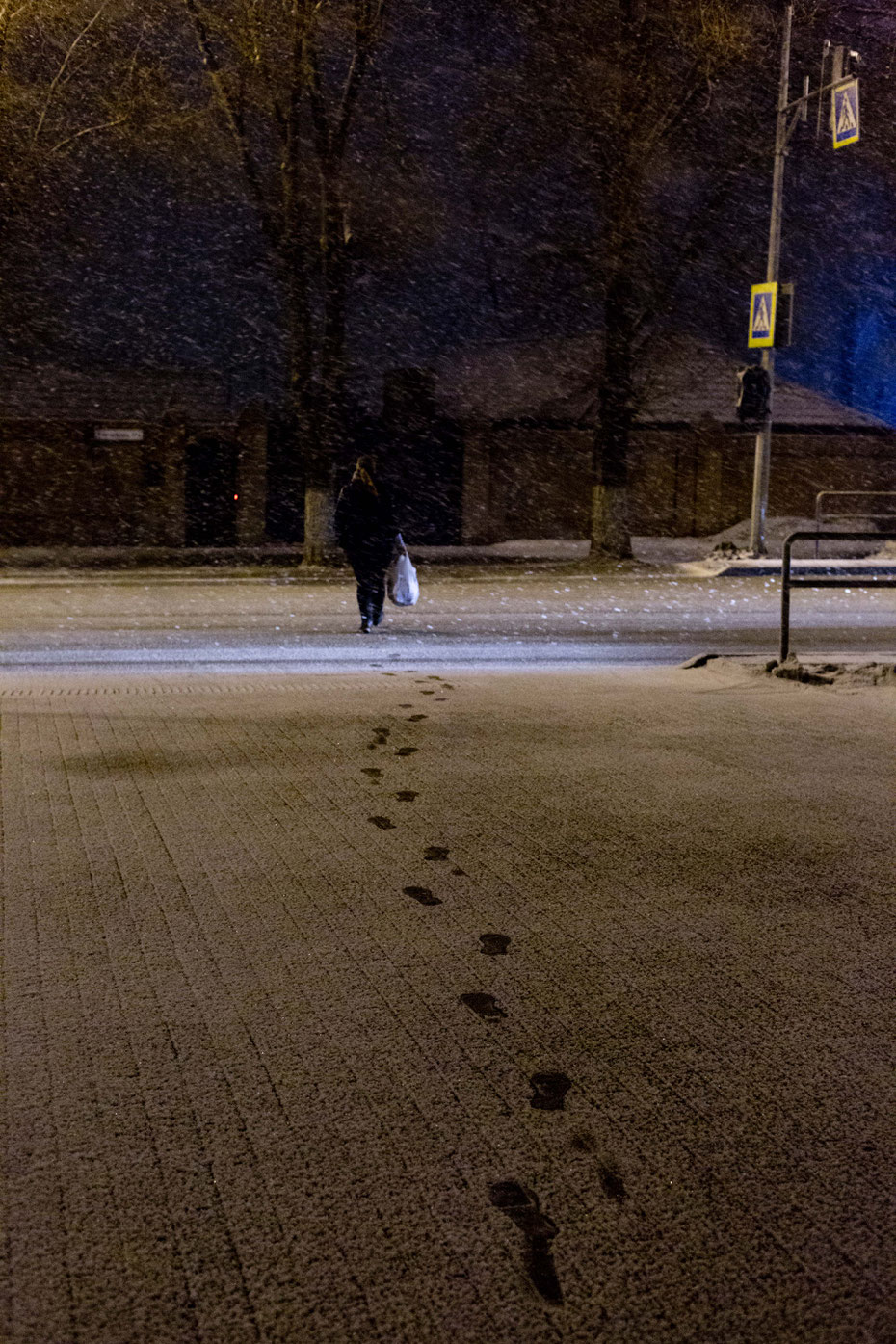Originally, I wanted to write about pancakes. But when I walked across the street this morning, I changed my mind.
As a Central European, I need a lot of courage to cross the road in Russia even on a zebra crossing. You can usually find a crossing sign attached to a lamp, in bright blue and yellow, to draw attention to the likelihood of pedestrians. The characteristic zebras on the ground are usually so weathered and scraped that one can never be quite sure of their existence. Whether the cars will hold remains unclear to the end. Nobody practices slowing down early to signal that you intend to stop. Predictability while driving is not a virtue the Russians practice. Neither is eye contact, waving or signalling through any signs. At least not that I can see. Every time I cross a zebra crossing and see the cars approaching fast and roaring like beasts, my inner alarm bells go off. Also, these are not chic city vehicles, but Russian trucks, heavy vans and models that are older than me. Say, just hypothetically, if one of their brakes didn't work one hundred percent, I'd be dead. The surprise in the whole thing, however, is that the cars always stop. So inconsiderate and risky as the Russians appear, they never actually are. If I wait on the pavement until the cars stop, I hold the traffic a few minutes longer than necessary and cause general displeasure – similar to a grandma with a stick. To keep traffic as fluid as possible, I have to overcome my angst and step out onto the busy road. Only then do I behave "respectfully" in traffic. These few seconds feel like a dare. I am right back with my eleven-year-old-self-standing on the 10-meter-jump. The stomach sinks to my knees, and a thousand warnings flash and howl in my head. If the first car stops, it gets better, but only when I've walked over the third track, and I've arrived safely on the other side, my head quiets down.
Living in Russia is characterised by constant exposure to potentially risky or dangerous situations. The ease with which Russians handle such situations escapes me. Things aren't forbidden until several people have perished. The falling icicles and sliding snow masses on rooftops, which have partly become ice sheets as the snow melted and froze again, have been pointed out to me as potentially dangerous from my arrival. However, many homeowners since hired a group of men to free their rooftops of possibly dangerous snow masses. They blocked off the footpath to push the snow off the roofs. The crew balanced on deteriorating old multi-family houses and looked over the edge into the depths. It was a spectacle in its own right. Of course, they did everything without safety precautions, ropes or the like. Since you can't actually see the houses roofs and thus don't know whether it has already been cleared or not, it's a daily weighing game. A first woman has already died in Samara this year, who was slain by ice masses falling from a rooftop. I wonder who, in this case, bears responsibility, the house owner or the pedestrian? As I experience Russia, I assume the pedestrian, but I don't know.
The danger zones are endless, and if I have to weigh whether it's more likely to fall on the ice, be buried by an ice mass, or be crushed by a car, the car is the most likely thing to kill me. However, that's not my experience. For as often as I throw myself in front of one, it always stops. The fear of an icicle to slay me, in comparison is abstract. Both are real dangers. However, with the car thing, I have to trust in the individual at the wheel. As the stronger person in the car, the Russians show a degree of consideration, for pedestrians, I didn't expect. My trust in the individual is rewarded daily. A paradox, which is a bit more interesting to me than pancakes (still, close call), and one that will continue to occupy my mind.



Write a comment